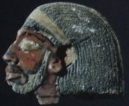- The New Moons are to be observed to set Yahawah’s Feasts. (Exodus 12:2) (Deuteronomy 16:1)
- The seventh day of every week is Yahawah’s Sabbath of rest, and a Holy Convocation. (Exodus 23:12, 16:23)
- Keep the Sabbath Day holy by making preparation in advance. (Exodus 20:8-11)
- Remove all leaven from all your property by the fifteenth of Abib. (Exodus 12:15)
- On the fifteenth day of Abib we must teach our children the story of The Exodus from Egypt. (Exodus 13:8)
- We must eat unleavened bread from the fifteenth through the twenty-first of Abib. (Exodus 12:18)
- The first day of The Feast of Unleavened Bread (Passover) is a Sabbath of rest and a Holy Convocation. Cooking may be done on a Feast Day Sabbath, but not on the weekly Sabbath. (Exodus 12:16)
- The seventh day of The Feast of Unleavened Bread (Passover) is a Sabbath of rest and a Holy Convocation. (Exodus 12:16)
- We must count fifty days-from the day after the First Holy Day Sabbath of the Feast of Unleavened Bread (The Count of Omer) to The Feast of Weeks. (Leviticus 23:15-16)
- The Feast of Weeks (Pentecost) is a Sabbath of rest and a Holy Convocation. (Leviticus 23:21)
- The Feast of Trumpets is a Sabbath of rest and a Holy Convocation. (Leviticus 23:24)
- The Day of Atonement is a day of complete fasting. (Leviticus 16:29-31)
- The Day of Atonement is a Sabbath of rest and a Holy Convocation. (Leviticus 23:27-32)
- The First Day of the Feast of Tabernacles is a Sabbath of rest and a Holy Convocation. (Leviticus 23:34-35)
- The Last Great Day is a Sabbath of rest and a Holy Convocation. (Leviticus 23:36)
- Dwell in booths (succahs-temporary dwellings) during The Feast of Tabernacles. (Leviticus 23:42)
- A Succah must be built before The Feast of Tabernacles. (Leviticus 23:40)
- Sound the shofar on The Feast of Trumpets. (Numbers 29:1)

Hebrew Israelite Online Resource | Know Ye Not?
The phrase “know ye not” or rather, "Didn't You Know" is used 15 times in the English New Testament. This site examines what it is the writers felt important that should have been understood by the early HEBREW ASSEMBLIES.